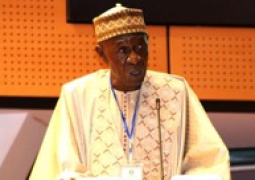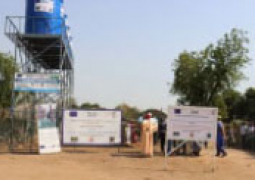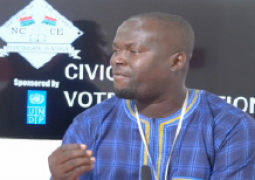
He observed that one of the most outstanding features of this year’s ‘Meet the People Tour’ is the openness, respect, and high participatory environment created for ordinary citizens especially farmers to express their concerns without intimidation or barriers.
The current format of the tour, he added, represents a major shift in how national consultations are handled, particularly in its commitment to ensuring that those directly affected by agricultural policies are heard.
“I am happy that farmers are given the chance to express their opinion without fear,” he said, adding that such freedom encourages transparency and strengthens trust between farmers and national authorities.
Mr. Njie also observed that farmer engagement is not a mere formality, but a strategic necessity for the country’s long-term agricultural success.
He noted that involving farmers in discussions about food production, market access, mechanisation, and sustainability would greatly help the Gambia move closer to achieving food self-sufficiency.
“As farmers, we are involved, and that is key towards achieving food self-sufficiency,” he noted.
The GFU SG also used the platform to commend the government for its continued commitment to the sector.
This, he said, is amply manifested in the recent interventions particularly the provision of improved and affordable fertiliser, which he described as a major relief to the farming communities.
“We want to thank the government for providing us with top-quality fertilizer, and it is also available everywhere,” he stressed.
Mr. Njie further explained that the steady supply of inputs this year marks a significant departure from past challenges where farmers struggled with shortages, high prices, or delays that often cripple planting periods.
As the “Meet the People’s Tour” caravan continues its journey across the country, agriculture remains one of the dominant topics raised by citizens. Farmers from various regions have shared concerns ranging from land degradation to access to markets, irrigation, post-harvest losses, and the need for expanded mechanisation. Thus, the tour has become a platform to amplify these issues, while allowing government to clarify ongoing reforms and future plans.
He expressed optimism that the renewed attention given to farmers’ voices will ultimately translate into long-term development outcomes.
The Union, he added, remains ready to continue working closely with the government and stakeholders to strengthen the agricultural sector, empower rural communities, and promote sustainable farming practices.
Read Other Articles In National News




